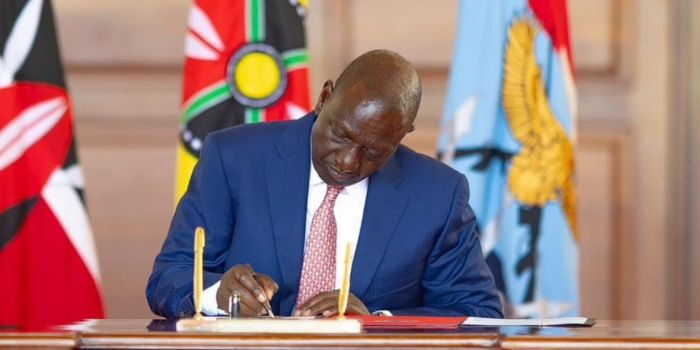President William Ruto has nominated former National Transport and Safety Authority (NTSA) Director General Francis Meja and former Independent Electoral and Boundaries Commission (IEBC) commissioner Boya Molu to the board of the Public Service Commission (PSC).
The two are among eight nominees announced in a notice signed by Head of Public Service Felix Koslkei on Friday, December 20.
Ruto nominated Mary Wanjira Kimonye as the Vice Chairperson. The others are Harun Maalim Hassan, Mwanamaka Amani Mabruki, Irene Cherotich Asienga, Dr. Francis Otieno Owino and Joan Andisi Machayo, who have been nominated as members.
According to the Head of State, the decision is to avoid any vacuum in the agency, which is the vehicle through which all government agencies hire.
Public Service Commission offices (Undated)
Capital Group
“This presidential action seeks to proactively address the forthcoming vacancies in the offices of the Vice Chairperson and six Members of the Commission, which are expected to occur in mid-January 2025, with an additional vacancy anticipated in April 2025,” reads part of the statement from Koskei.
The names have been forwarded to Parliament for vetting. Parliament is on a long recess that is expected to end in February. However, we are likely to see them return early.
This is to facilitate the vetting of cabinet nominees announced on Thursday evening.
At the moment, Ambassador Anthony Mwaniki Muchiri is the chairperson of PSC.
The PSC’s functions and powers include establishing and abolishing offices in the public service, appointing individuals to hold or act in those offices, and confirming such appointments.
Additionally, the Commission exercises disciplinary control over public servants, promotes the values and principles referred to in Articles 10 and 232 of the Constitution throughout the public service, and investigates, monitors, and evaluates the organisation, administration, and personnel practices within the public service.
It also ensures that the public service operates efficiently and effectively, develops human resources, reviews and makes recommendations to the national government regarding conditions of service, codes of conduct, and qualifications of public service officers, and evaluates and reports to the President and Parliament on the extent to which the values and principles mentioned in Articles 10 and 232 are complied with in the public service.
Furthermore, the PSC hears and determines appeals concerning county governments’ public service and performs any other functions and exercises any other powers conferred by national legislation.
It’s important to note that the PSC’s authority does not extend to certain offices, including state offices, diplomatic positions, and offices subject to other commissions such as the Parliamentary Service Commission, the Judicial Service Commission, the Teachers Service Commission, and the National Police Service Commission.
PSC Chairperson Anthony Muchiri addressing the press
PSC


